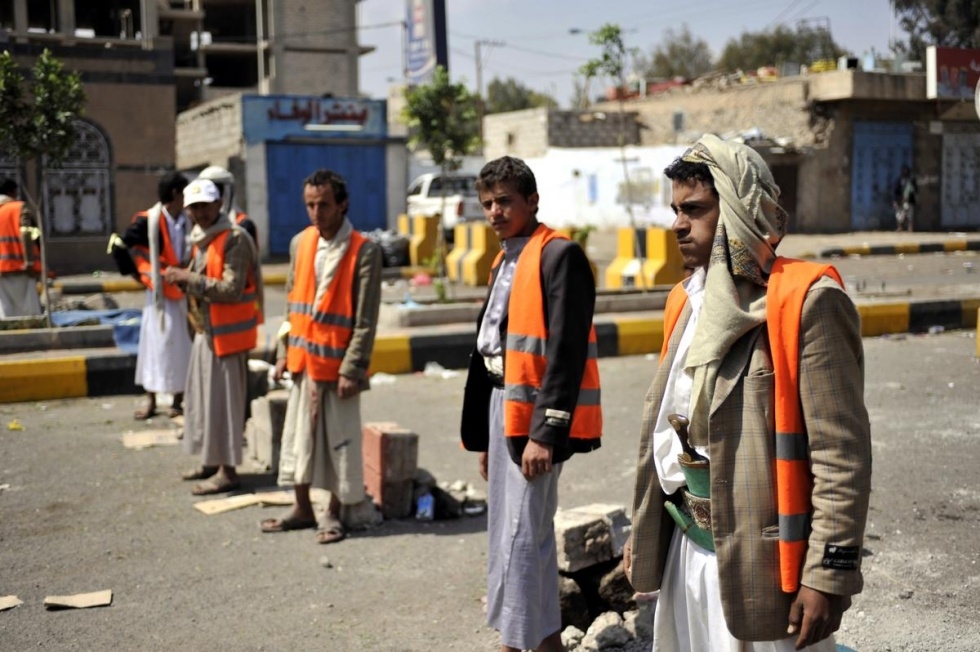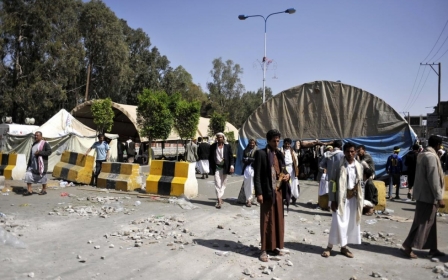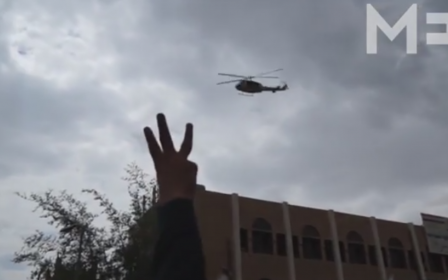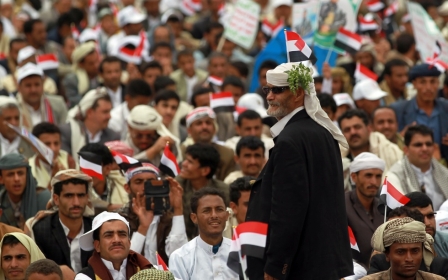7 activists killed trying to storm Yemen government HQ

Yemeni police killed seven Houthi rebels on Tuesday when they opened fire on hundreds of protesters attempting to storm government headquarters in Sana'a, a protest organiser said.
The incident comes just hours after the Houthi leader called on supporters to escalate their anti-government protests by taking to the Tagyeer Square in Sana'a, as analysts warned that the country is on the brink of violence more grave than that faced during uprisings in 2011.
In a televised speech carried on the Houthi's Al-Massira TV channel, Abdul-Malik al-Houthi reiterated the group's demands which include the dismissal of Prime Minister Mohammed Basindawa's government, reversal of an earlier government decision to slash fuel subsidies and implementation of the national dialogue's recommendations, namely fighting corruption and adding other parties to the cabinet.
The concessions are core demands of the Houthis who launched their protest movement on 18 August, after battling troops and tribes for months for control of key cities north of Sanaa.
In his televised statement, Al-Houthi went on to threaten "strategic, major escalatory" steps by his group if their demands were not fulfilled by President Abd Rabbuh Mansour Hadi.
Such steps, he said, would be coordinated with other groups and would go beyond Sanaa to other cities in the country. He did not elaborate.
The Yemeni interior minister General Abdullah al-Turab on Monday sacked the head of the Special Security Forces Fadl al-Qousy and assigned under secretary general Mohammed Mansour the leadership of the security forces - the strongest among the interior ministry's organs.
The group has recently mounted a series of massive protests in Sanaa to demand the dismissal of the government and the reinstatement of recently-slashed fuel subsidies.
Last week, the president offered to sack the government, inviting the Houthis to take part in a new national unity cabinet. He also offered to reduce fuel prices. The Houthis, however, spurned the overture and vowed to further escalate its protests.
Tensions rose further when two Houthi supporters were killed near Sanaa International Airport where the group set up tents to block access to the ministries of electricity and telecommunications. Forty others were wounded injured in clashes.
Yemeni police also fired tear gas with tens of Houthi supporters needing treatment for breathing problems, Houthi leaders said. Police said they had told the protesters to evacuate the roads and ministries beforehand.
Should tensions continue to rise and negotiation efforts between the Houtis and Hadi falter, the International Crisis Group (ICG) has warned of "a conflict at least as grave as that of 2011, when two parts of the army, one supporting Saleh and the other the uprising, faced off in the capital."
"The situation today is much more dangerous since the domestic political landscape is deeply fractured and multipolar," an ICG statement on Monday said. "None of the major political forces - the Houthis, [former President Ali Abdullah] Saleh's General People's Congress, Islah or Hadi - can alone control the capital, nor is it clear that they would be able to restrain their supporters if fighting erupts."
On Monday, Yemen's chief of the special police forces, loyal to former president Saleh, was sacked and replaced with a government official with close ties to the interior ministry. No reason for the replacement was disclosed, according to AFP.
Fighting also continued between Houthis and Yemeni military in the Jawf province, northeast of Sanaa as air forces carried out raids on Houthi positions in the province's Ghayl region.
The group and Yemeni forces have been fighting in the province since April. In its statement on Monday, ICG said the group's fight against Islah-affiliated tribesmen and the military in the province is widely viewed as an effort to create facts on the ground to force a renegotiation of the country's six-region federal structure proposed by the National Dialogue Conference, Yemen's transitional dialogue process set up in 2013 after Saleh's ouster.
In Jawf, Houthis are reportedly fighting for control of roads linking the capital with the oil production province of Marib where a main oil pipeline was attacked by gunmen on Sunday, halting the flow, the defence ministry reported.
Attacks on oil and gas pipelines in Yemen are frequent and are often carried out by heavily armed tribes as a lever to press for their demands.
New MEE newsletter: Jerusalem Dispatch
Sign up to get the latest insights and analysis on Israel-Palestine, alongside Turkey Unpacked and other MEE newsletters
Middle East Eye delivers independent and unrivalled coverage and analysis of the Middle East, North Africa and beyond. To learn more about republishing this content and the associated fees, please fill out this form. More about MEE can be found here.




